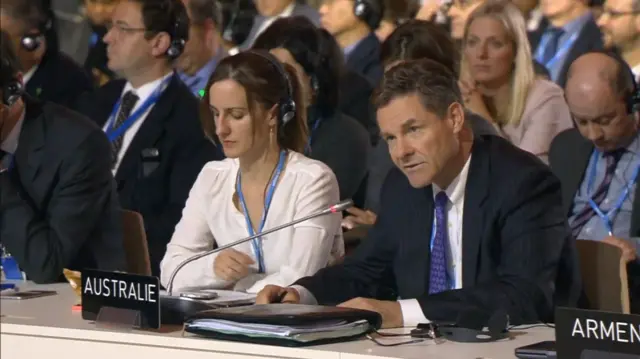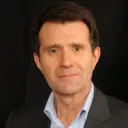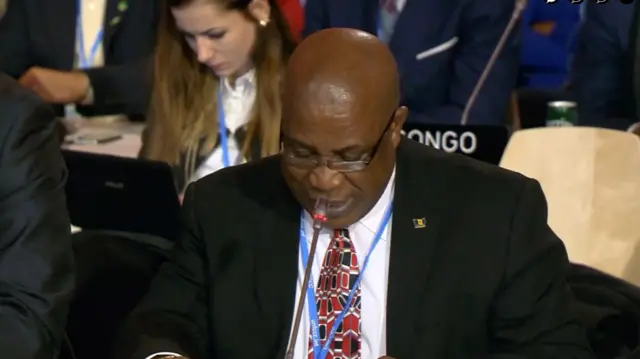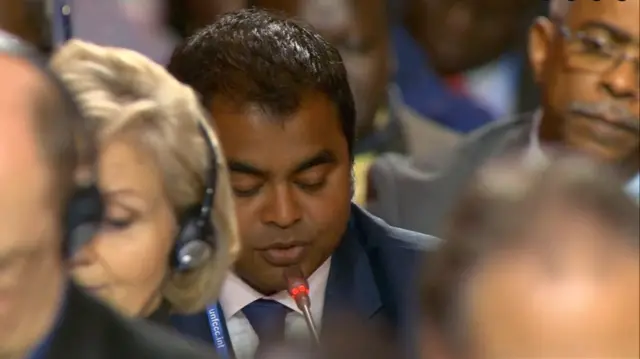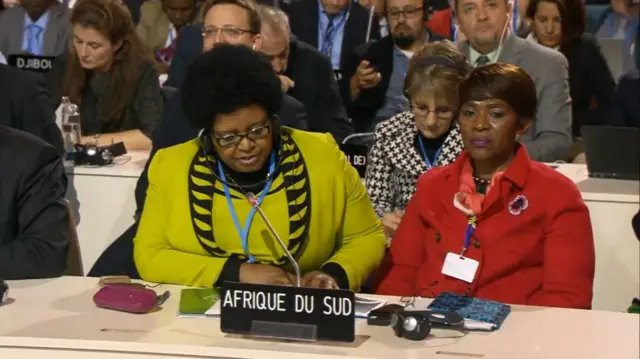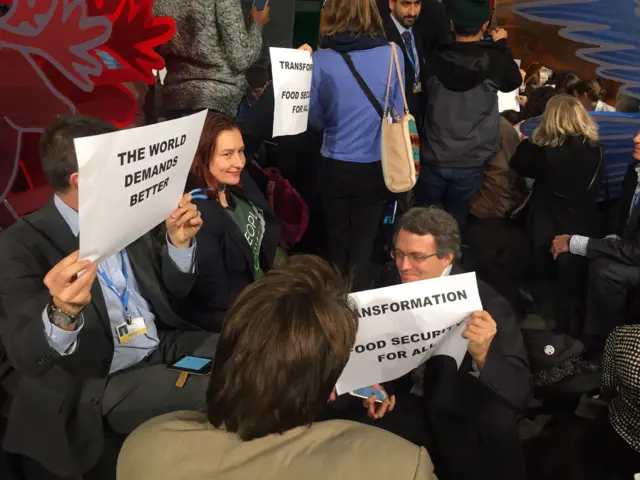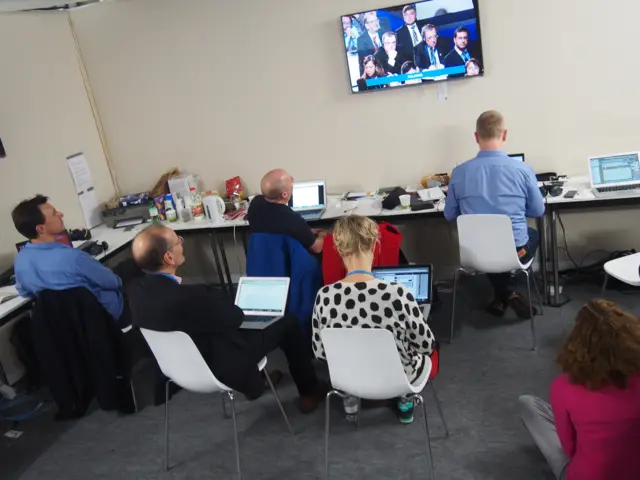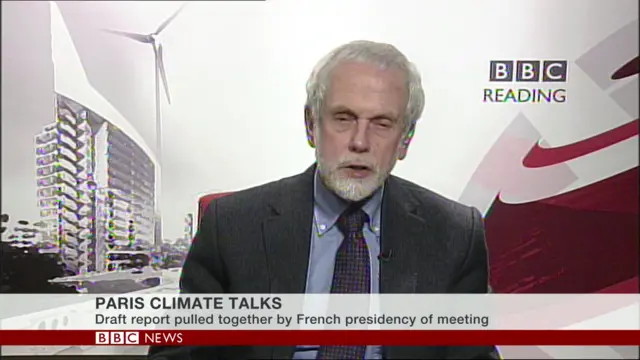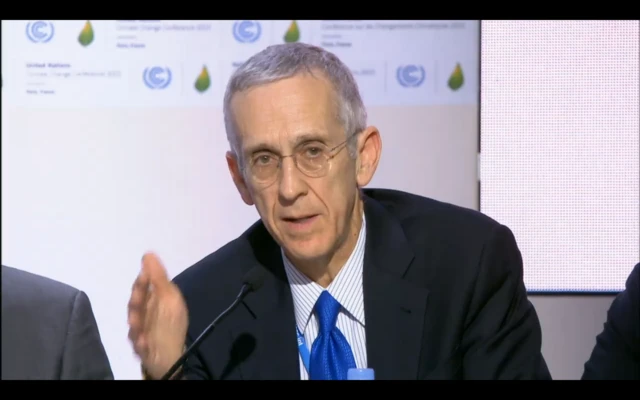Concerns about islands - and a lack of ambitionpublished at 20:14
A representative of Trinidad and Tobago insists that the special circumstances of small island states must be "fully entrenched" in the agreement - and they're not at the moment.
Such nations cannot be expected to make the same commitments as those with more resources, he adds.
The EU, meanwhile, begins with thanks and compliments to the French team who constructed the draft - but complains that while the text has been cut down to size, it has been stripped of much of its ambition.
